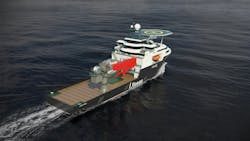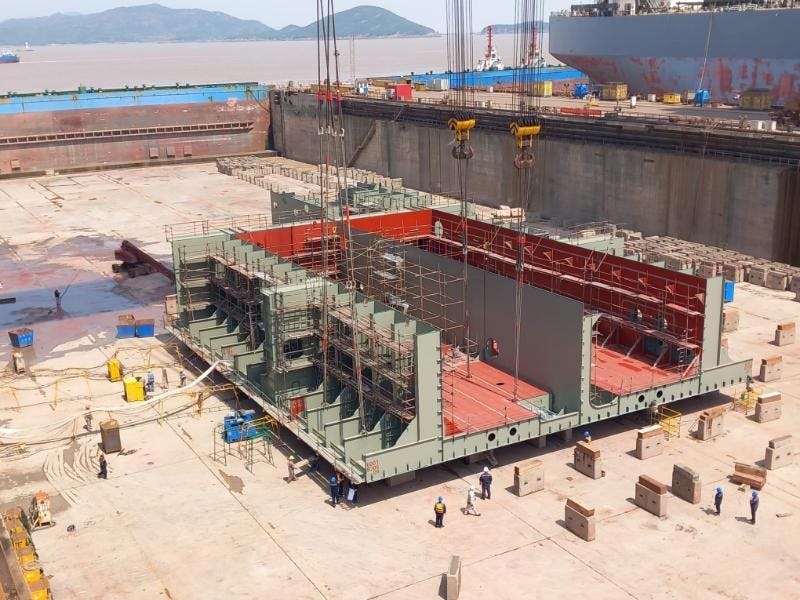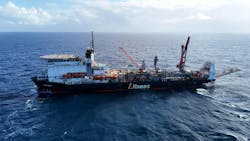Allseas boosting offshore fleet with two construction vessels, heavy-lift support barge
Allseas has contracted Wuchang Shipbuilding Industry Group in China to provide two newbuild offshore construction vessels (OCVs),
Both will be based on the established SALT 308 OCV design.
According to Allseas, the new ships will augment its construction and support capacity, freeing up its existing OCVs for more extensive and complex workscopes.
The first vessel is due to be delivered in September 2026, followed by the second three months later. Each will be 100 m long, with a 1,100-sq-m cargo deck, accommodation for up to 110 personnel, a DP2 dynamic positioning system, and a 150-metric-ton active heave-compensated offshore crane.
In addition, the vessels will each have hangars housing two work-class ROVs; a hybrid 1,500-kWh battery energy storage system; and methanol-ready propulsion designed for a switch to future fuels. Both will be able to perform subsea construction, ROV support, and inspection, maintenance and repair activities.
Allseas has also commissioned Braveheart, a new cargo barge, from the CIMC Changhong Shipyard near Shanghai, China. The first of 145 steel blocks, weighing a total of 26,000 mt, was recently lifted into the dry dock for assembly, outfitting and painting.
Braveheart will support the company’s heavy-lift campaigns. It will be 200 m long and 57 m wide, which is similar to Iron Lady but with a deeper operational draught, a fully electric ballast system for faster load transfer operations and a larger deck load capacity.
The completed barge is set to be launched in September, with delivery scheduled by the end of this year.
And in the Dutch North Sea, Allseas temporarily suspended offshore works last week with its pipelay vessel Lorelay on the Porthos CO2 transport pipeline project, after the vessel encountered equipment issues.
The pipeline was temporarily abandoned with Lorelay relocating to Rotterdam for investigations. Allseas, as main offshore contractor for the project, is currently assessing the impact on the schedule.
About the Author
Jeremy Beckman
Editor, Europe
Jeremy Beckman has been Editor Europe, Offshore since 1992. Prior to joining Offshore he was a freelance journalist for eight years, working for a variety of electronics, computing and scientific journals in the UK. He regularly writes news columns on trends and events both in the NW Europe offshore region and globally. He also writes features on developments and technology in exploration and production.



